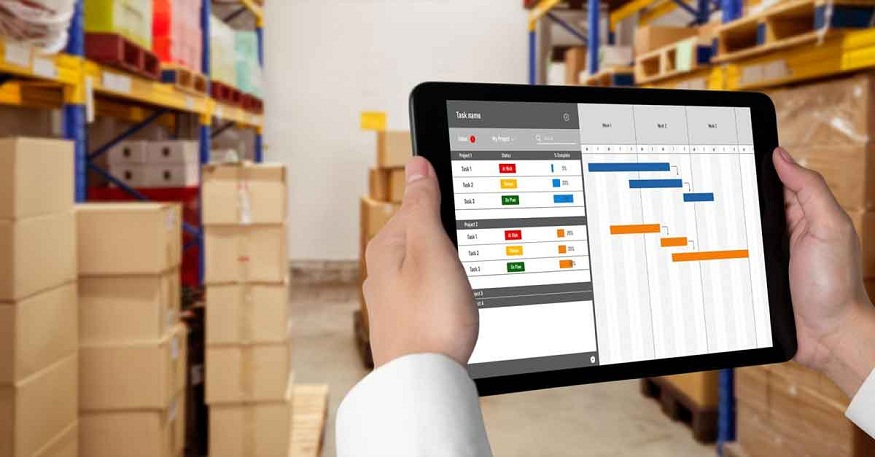The world of business-to-business, or B2B, is transforming due to digitalization. E-commerce solutions are becoming more and more popular among wholesalers and distributors. It also helps to improve customer service, expedite operations, and spur growth. On the other hand, using conventional ways to manage intricate B2B order structures can lead to inefficiency and frustration. This is the point at which B2B order management software becomes revolutionary.
Order management system software is not limited to managing conventional business-to-business (B2B) orders with set fulfillment procedures and lengthy lead times. In the B2B market, there is an increasing need for short-lead-time orders that seem more like B2C purchases, and it helps you handle these sales.
The Pitfalls of Traditional Order Management
Many B2B businesses still use manual procedures for order administration. But there are a lot of difficulties with these approaches:
- Error-Prone Processes: Human mistakes can occur during manual data entry, which might result in incorrect order fulfillment and unhappy customers.
- Restricted Visibility: Spreadsheets provide very little in the way of real-time order status information, which makes it challenging to monitor developments and predict possible delays.
- Ineffective Communication: It can take time and be inefficient to manually update clients.
- Scalability Problems: Manual systems find it challenging to grow with the business or handle more orders.
These restrictions may seriously impair your capacity to provide outstanding customer service, keep up effective operations, and experience long-term growth.
Why your business needs a B2B order management system
There are five main reasons why using B2B order management system software is one of the best decisions your company can make.
It streamlines your sales channels
It might be difficult to manage several sales channels, mainly if your business integrates orders manually. Order duplication and forgetfulness happen far too frequently, causing problems for both you and your clients.
However, a digital order management platform helps you prevent expensive errors and missing orders by centralizing all of your order data in one location. For example, your staff can monitor both orders simultaneously and identify any problems early if a consumer orders online and later through a sales representative. Additionally, you can track orders with the help of order tracking software as well as your customers can also track their orders with the support of this software.
It reduces order processing time
In a traditional sales procedure, sales representatives usually have to confirm order information via email exchanges and phone calls. Just this back and forth can add to the delay in order processing, and if a sales representative is absent or sick, it can further delay a sale. B2B ecommerce software solutions for customers might help your company avoid delays. Customers do not have to wait to speak with a sales representative, they may swiftly place orders on their own within the platform.
Hiring more sales representatives is the only option to grow your company without an order management system, and doing so is expensive and time-consuming. You can handle more orders using order management software without adding to the workload of your sales force. This allows your sales team to concentrate on what they do best, which is bringing in new business, rather than wasting time processing orders and reorders.
For example – A paint manufacturer relied on sales representatives to handle everything – from quotes to order processing. To keep up with growth, they’d need more representatives, which would be a costly and lengthy process. An order management system automates tasks, freeing reps to focus on sales. They win more clients without adding headcount.
It makes managing inventory easier
You can also prevent running out of inventory (and the associated panic) by implementing a B2B order manager system. The software automatically changes stock levels upon each new order and displays the quantity of each product you have in stock. Even when stock levels fall below a particular threshold, you can set up notifications. You may proactively refill essential products with this enhanced visibility, ensuring your consumers can always find them.
It gives your customers a better experience
According to Gartner, 75% of B2B clients like sales procedures that do not include speaking with sales representatives. By using a digital ordering system, your business will not only enhance its fulfillment procedure but also conform to the requirements of its customers. Furthermore, B2B supply chain management software can give your clients a better overall experience. It facilitates their ability to place orders and use a variety of payment options at the register. Additionally, the platform gives users greater visibility, enabling them to trace orders and request returns.
Choosing the Right B2B Order Management Software
A thorough selection procedure is necessary because there are numerous B2B order management software alternatives available. Here are some crucial elements to consider:
- Functionality and Features: Make sure the program complies with your unique requirements for B2B ecommerce software solutions. Give features that solve your particular workflows and challenges a priority.
- Scalability: Take into account your business’s anticipated future expansion and select software that can effectively adapt to accommodate your B2B needs as order volume rises.
- Usability and User Interface: Your staff should be able to adapt and navigate the software’s user-friendly interface easily.
- Integrations: Your new program must interface with the instruments you now use, like CRM (customer relationship management) software, Supply chain and warehouse management software, ERP (Enterprise resource planning) software, PIM (product information management) software, and Accounting software.
- Security and data protection: The prevalence of ransomware and other cyberattacks means that your B2B order management software must adequately safeguard the information of your clients. Keep an eye out for security features like data encryption, user access role assignment, and multi-factor authentication. Additionally, specific platforms support single sign-on.
The Bottom Line
For every B2B company, implementing B2B order management system software is a strategic move. Adopting technology and selecting the appropriate software program can yield many benefits. In the ever-changing B2B landscape, optimizing your B2B operations with B2B order management software can unleash productivity, improve client connections, and create the foundation for sustainable growth.



